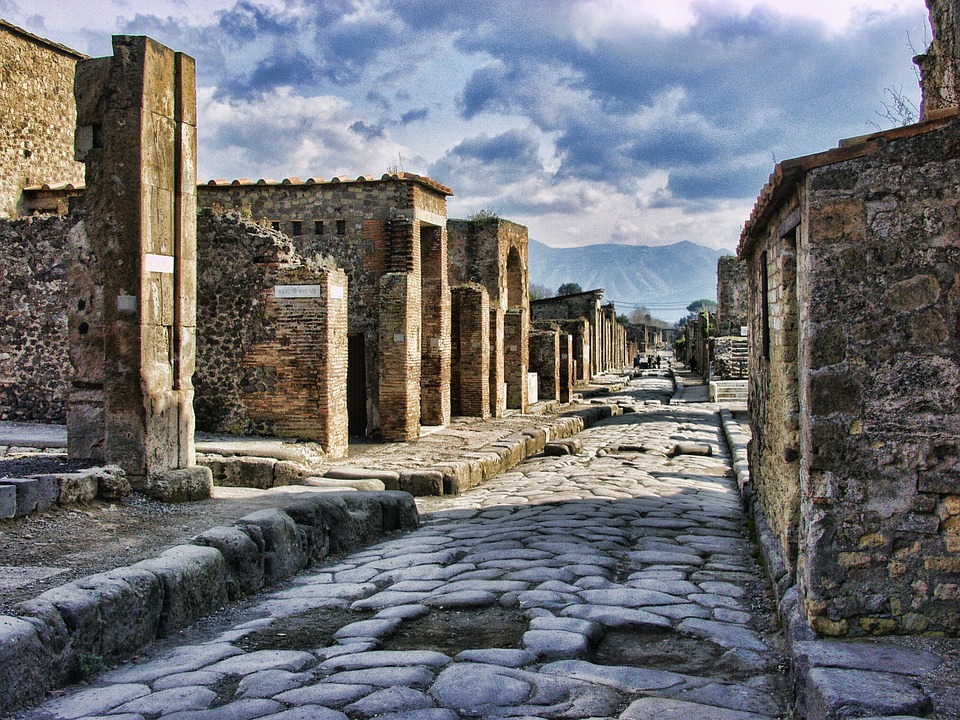 |
| Pompeii: https://cdn.pixabay.com/photo/2017/06/05/20/15/pompeii-2375135_960_720.jpg |
There are four types of regular verbs in Italian, and they each have a specific pattern of conjugation.
Perhaps the most common, at least for beginners, are those that end in -ARE.
We looked at the verb lavorare, "to work," in my last post on professions. To review, let's try another one: GUARDARE (to look at/to watch)
To conjugate a regular "ARE" verb, first remove the "ARE" from the end of the verb:
Then, conjugate as follows:
- I watch: io guàrdo (add o)
- You watch (singular, informal): tu guàrdi (add i)
- He watches: lui guàrda (add a)
- She watches (or you watch- singular, formal): lei guàrda (add a)
- We watch: noi guardiàmo (add iamo)
- You watch (plural): voi guardàte (add ate)
- They watch: loro guàrdano (add ano)
For a video lesson on this conjugation, check out this YouTube video (very thorough and clear...almost painfully so! But definitely worth watching if you are an auditory learner)
For a list of some other common -ARE verbs, click here:
Here are a few good quizlet pages to practice some of the common are verbs (meaning only)
And here are some to practice actual conjugations (excellent practice!)
Once you have studied these like crazy and feel that you know them pretty well, here are a few games you can play to quiz yourself:
And, of course, here are some songs with regular -are verbs!
- Here is Domenico Modugno singing Volare on Italian TV in 1958 (also called Nel Blu Dipinto di Blu) Mondugno, Volare
- Here is the same song performed in 2006 at the San Remo music festival by modern Italian pop stars Laura Pausini and Eros Ramazzotti Pausini/Ramazzotti, Volare
- Lyrics: Lyrics, Volare (for partially English versions, search for the song sung by Dean Martin or Frank Sinatra)
- In this one, listen for the verb essere ("tu sei") parlare, guardare, camminare, diventare, vergnognare, and lots of others. This is a singer named Noemi that performed on Italy's "X Factor": Albachiara, Noemi
- Lyrics : Albachiara, Lyrics
- And one by Toto Cotugno, Lascatemi Cantare Cotugno, Lascatami Cantar (lyrics on the video)
- And a slightly sappy love song by Luca Barbarossa at San Remo in 1992, Portami a Ballare
- Barbarossa, Potrami a Ballare
- Lyrics: Portami a Ballare, Lyrics
Ciao ciao!

